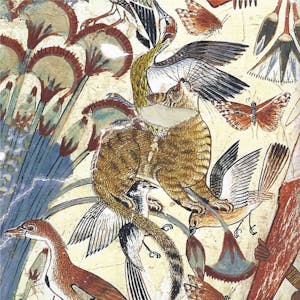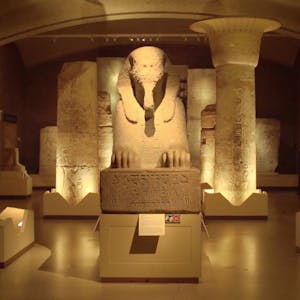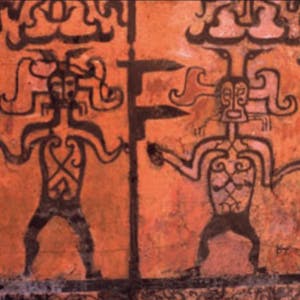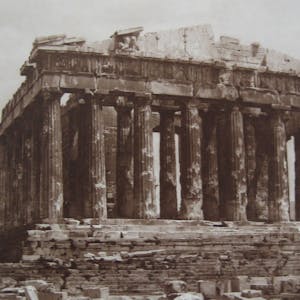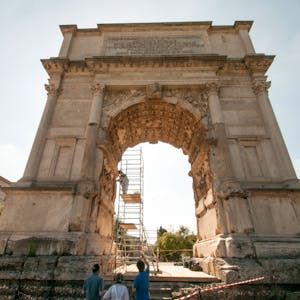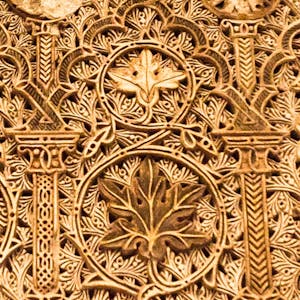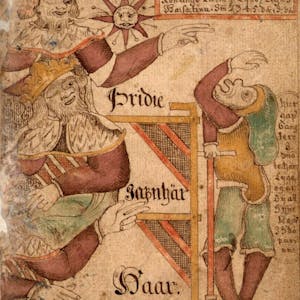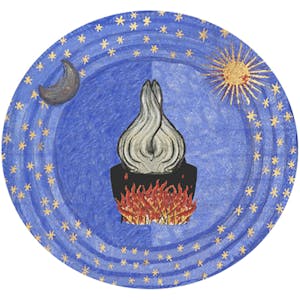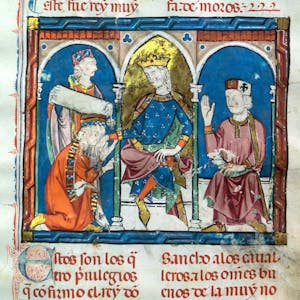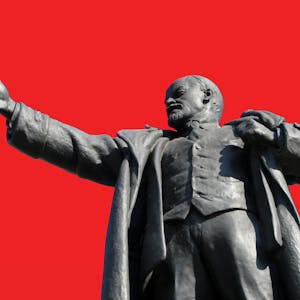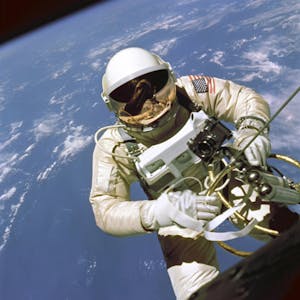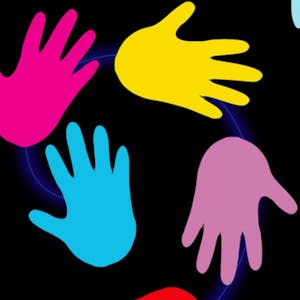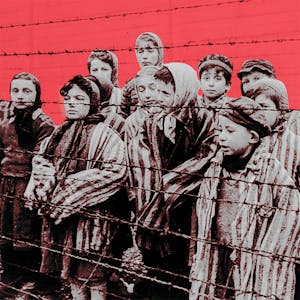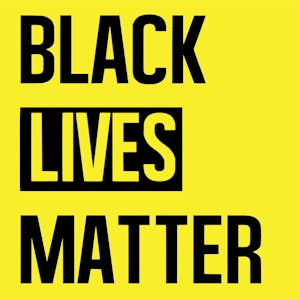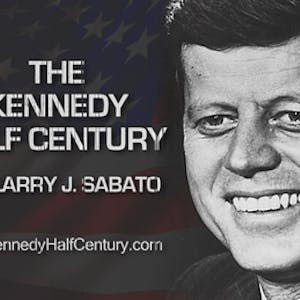Online professional development for History teachers

If you're looking for some great PD opportunities to help support your teaching of history, here is a list of some excellent learning for you. Courses are provided by Coursera and cover topics from the ancient to the modern world. By exploring these affiliate links, you are also helping to support the History Skills website.
Ancient History
Egypt before and after pharaohs
History of Ancient Egypt. Before and after the Pharaohs: From the birth of the State (c. 3000 BCE) to the early Christian communities (4th century CE).
Sign up now via Coursera
Introduction to Ancient Egypt and Its Civilization
Colossal pyramids, imposing temples, golden treasures, enigmatic hieroglyphs, powerful pharaohs, strange gods, and mysterious mummies are features of Ancient Egyptian culture that have fascinated people over the millennia. The Bible refers to its gods, rulers, and pyramids. Neighboring cultures in the ancient Near East and Mediterranean wrote about its god-like kings and its seemingly endless supply of gold. The Greeks and Romans describe aspects of Egypt's culture and history. As the 19th century began, the Napoleonic campaign in Egypt highlighted the wonders of this ancient land, and public interest soared.
Sign up now via Coursera
Intellectual Change in Early China: Warring States and Han
This sequence of four courses will propose a multi-disciplinary approach to the study of Chinese cultural history conceived of as a succession of modes of rationality (philosophical, bureaucratic, and economic). The focus will be on the moments of paradigm shift from one mode of rationality to another.
Sign up now via Coursera
This is a survey of ancient Greek history from the Bronze Age to the death of Socrates in 399 BCE. Along with studying the most important events and personalities, we will consider broader issues such as political and cultural values and methods of historical interpretation.
Sign up now via Coursera
Arch of Titus: Rome and the Menorah
The Arch of Titus: Rome and the Menorah explores one of the most significant Roman monuments to survive from antiquity, from the perspectives of Roman, Jewish and later Christian history and art. The Arch of Titus commemorates the destruction of Jerusalem by the emperor Titus in 70 CE, an event of pivotal importance for the history of the Roman Empire, of Judaism, of Christianity and of modern nationalism. Together with your guide, Professor Steven Fine, you will examine ancient texts and artifacts, gaining skills as a historian as you explore the continuing significance of the Arch of Titus from antiquity to the very present.
Sign up now via Coursera
Medieval History
Coexistence in Medieval Spain: Jews, Christians, and Muslims
This course explores Jewish, Christian, and Muslim intercultural relations in Iberia from the Visigothic era (6th century CE) until the creation of Queen Isabel I and King Ferdinand II Catholic Spain (late 15th century). We evaluate the many identities of the peninsula known as Christian Hispania, Jewish Sefarad, and Islamic al-Andalus. We trace the origins and trajectory of conflict between these communities (the Muslim conquest of Spain, Christian Reconquista, prohibitions blocking intermixing of peoples, and expulsions).
Sign up now via Coursera
Old Norse Mythology in the Sources
This course is an introduction to the religion of the Vikings as it is recorded in Old Norse and Scandinavian literature from the medieval period. You will learn about the different written sources and what they can teach us about pre-Christian religion in northern Europe in the Viking Age. The course surveys the primary collection of Old Norse poetry about the pre-Christian Scandinavian gods, the Poetic Edda. We will also work with the main collections of stories about the Old Norse gods in prose: Snorri Sturluson's Edda and Saxo's History of the Danes.
Sign up now via Coursera
Magical thought has always attracted human imagination. In this course we will introduce you to the Middle Ages through a wide conception of magic. Students will have an approach to medieval culture, beliefs and practices from the perspective of History and History of Science. Popular magic, as well as learned magic (alchemy, geomancy and necromancy) will be addressed. Moreover, we will also deal with how eastern practices and texts influenced western culture.
Sign up now via Coursera
Toledo: Deciphering Secrets of Medieval Spain
This course evaluates the medieval history of Toledo from the era of the Visigoth Kingdom (6th-8th centuries) through its Islamic period (8th to 11th centuries) and into its reintegration into Christian Spain (after 1085 c.e.) In particular, we take note of the cultural and religious transformations that characterized the city with a special effort to understand how many peoples and religions came to settle and live amongst one another.
Sign up now via Coursera
Modern History
Russian History: from Lenin to Putin
In this course, Peter Kenez, Professor Emeritus at UC Santa Cruz, explains the events of modern Russian history and introduces its most significant actors—from Vladimir Lenin to Vladimir Putin.
Sign up now via Coursera
A Brief History of Human Spaceflight
This course provides a view of the history of spaceflight, from early writings telling of human's fascination of space through the early Russian and American space stations. Developed as an interesting and entertaining slice of space history that is accessible to anyone with an interest in human spaceflight.
Sign up now via Coursera
The Modern World, Part Two: Global History since 1910
This is a survey of modern history from a global perspective. Part Two begins early in the twentieth century, as older ways of doing things and habits of thought give way. What follows is an era of cataclysmic struggles over what ideas and institutions will take their place. The course concludes in the present day, as communities everywhere are transitioning into a new era of world history. Again we work hard to grasp what is happening and ask: Why? Again we are drawn to pivotal choices made at key moments by individuals and communities.
Sign up now via Coursera
Race and Cultural Diversity in American Life and History
Learners will deepen their understanding and appreciation of ways in which race, ethnicity and cultural diversity have shaped American institutions, ideology, law, and social relationships from the colonial era to the present. Race and ethnicity are ideological and cultural categories that include all groups and individuals. Hence, this course is designed in significant part to take a broad look at the ideology of race and cultural diversity in America’s past and present.
Sign up now via Coursera
The Holocaust: The Destruction of European Jewry
The Holocaust: The Destruction of European Jewry is an adaptation of an on-campus course that has been co-taught by Murray Baumgarten, Distinguished Professor of English and Comparative Literature (Literature Department), and Peter Kenez, Professor Emeritus (History Department), for over 20 years at UC Santa Cruz. In this course, you will explore the Holocaust from the overlapping perspectives of literature and history—through memoirs, historical documents, poetry, documentary footage, filmic representations, and novels.
Sign up now via Coursera
The #BlackLivesMatter movement is the most significant political movement in African American life in the United States in the last fifty years. BLM leaders denounced anti-black racism, white supremacy, and police brutality and reshaped how we think about gender, sexuality, social justice, economic injustice, and crime. The movement is grounded in a long history of African American activism. From slave revolts to the Black Panther Party, from the founding of the Congressional Black Caucus, to the eruption of the #BLM Movements, this course is an interdisciplinary and historical exploration of the BlackLivesMatter movement.
Sign up now via Coursera
When John F. Kennedy entered the presidential limousine at Love Field in Dallas, Texas on November 22, 1963, he began his ride into history. That journey continues even today and we call it the Kennedy legacy. This course will explore the Presidency, assassination, and lasting legacy of President John F. Kennedy. Students will learn how JFK’s life, administration, and tragic death have influenced the general public, the media, and each of the nine U.S. presidents who followed.
Sign up now via Coursera
Cultural Competence - Aboriginal Sydney
This course explores some of the key themes and capabilities of cultural competence by exploring Aboriginal experiences and narratives of Sydney. Australia was ‘claimed’ for the British Crown in 1770, by Captain James Cook, but the invasion began in earnest when the First Fleet of British arrived in 1788 and established a penal colony in Sydney. As a consequence Sydney is a city rich in diverse pre-colonial, colonial and contemporary sites of significance to Aboriginal peoples. Too often though our perceptions about Aboriginal peoples consign them to an ancient past or perpetuates stereotypical imaginations that Aboriginal peoples live in remote communities (Hinkson, 2010).
Sign up now via Coursera
What do you need help with?
Download ready-to-use digital learning resources
Copyright © History Skills 2014-2025.
Contact via email
With the exception of links to external sites, some historical sources and extracts from specific publications, all content on this website is copyrighted by History Skills. This content may not be copied, republished or redistributed without written permission from the website creator. Please use the Contact page to obtain relevant permission.

